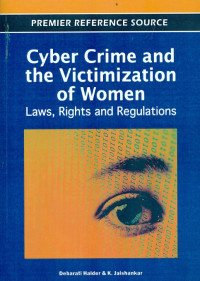
Text
Elements of war crimes under the rome statute of the international criminal court
In Articles 6, 7 and 8, the Rome Statute sets out a list of crimes over which the ICC will have jurisdiction: genocide, crimes against humanity and war crimes. In order to provide greater certainty and clarity concerning the content of each crime, a preparatory commission (PrepCom), which was mandated by the UN General Assembly, finalised a document on elements of crimes (EOC). The EOC, which were adopted in the meantime by the Assembly of States Parties, will guide the future judges and will therefore be of crucial importance for the work of the ICC in the interpretation of the provisions on crimes. The ICRC was active throughout the process of negotiating the Rome Statute and the subsequent instruments. In part icular, in order to assist the PrepCom, the ICRC prepared a study of existing case law and international humanitarian and human rights law instruments relevant to drafting the elements of war crimes. In preparing the study, the ICRC played its internationally recognised role as guardian of international humanitarian law. The aim of the study was to provide the government delegations taking part in the PrepCom with the necessary legal background and to prepare a means of accurately interpreting war crimes as defined in the Rome Statute. The ICRC's work was greatly appreciated by an overwhelming number of delegations and considerably influenced the outcome of the negotiations. Several delegations indicated in particular that the sources quoted in the study would be of enormous assistance to future judges, not only those of the ICC but, more importantly, national judges who will have to apply international humanitarian law under their national legislation. The ICRC was repeatedly encouraged to publish the study. Under the regime of the 1949 Geneva Conventions and the 1977 Additional Protocols thereto, States undertook to enact any legislation necessary to provide effective penal sanctions for persons committing, or ordering to be committed, grave breaches of the Geneva Conventions and Additional Protocols as defined in these instruments of international humanitarian law. More specifically, they incurred the obligation to search for persons alleged to have committed, or to have ordered to be committed, such grave breaches, and to bring such persons, regardless of their nationality, before their own courts. They may also, if they prefer, hand such persons over for trial to another High Contracting Party. In addition, States agreed to take measures necessary for the suppression of all acts contrary to the provisions of the Conventions and Protocols other than grave breaches.
The decision to lay down specific rules on the penal repression of serious violations of international humanitarian law was founded on the conviction that a law which is not backed up by sanctions quickly loses its credibility. Those who drafted the Geneva Conventions and Additional Protocols felt that penal repression could best be ensured on the national level, leaving the primary responsibility of defining and setting up an appropriate system to national authorities. Nevertheless, ever since the founding of the United Nations, and especially in view of the trials that took place after the Second World War, there has been an ongoing debate on the need to create a permanent international criminal court competent to try international crimes, including serious violations of international humanitarian law.
Availability
| KP.1.00003 | KP.I.KNU E | My Library | Available |
Detail Information
- Series Title
-
-
- Call Number
-
KP.I.DOR e
- Publisher
- Hoboken, NJ : International Committee of the Red Cross (ICRC)., 2002
- Collation
-
ix, 524 hlm. ; 25 cm.
- Language
-
English
- ISBN/ISSN
-
0-521-81852-4
- Classification
-
KP.I.
- Content Type
-
-
- Media Type
-
-
- Carrier Type
-
-
- Edition
-
-
- Subject(s)
- Specific Detail Info
-
-
- Statement of Responsibility
-
-
Other version/related
No other version available
File Attachment
Comments
You must be logged in to post a comment
 Computer Science, Information & General Works
Computer Science, Information & General Works  Philosophy & Psychology
Philosophy & Psychology  Religion
Religion  Social Sciences
Social Sciences  Language
Language  Pure Science
Pure Science  Applied Sciences
Applied Sciences  Art & Recreation
Art & Recreation  Literature
Literature  History & Geography
History & Geography